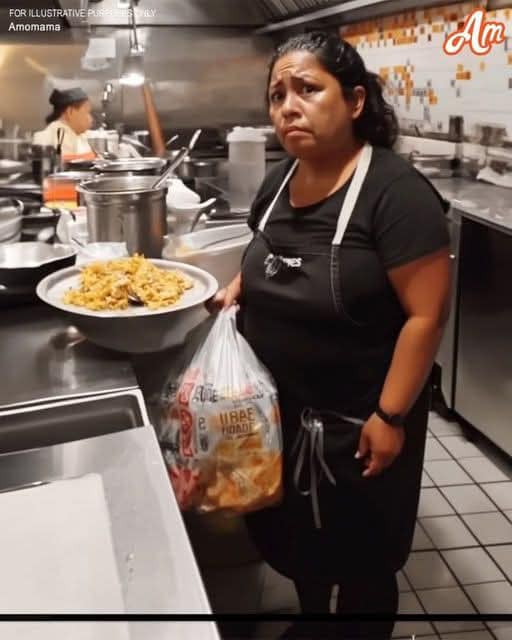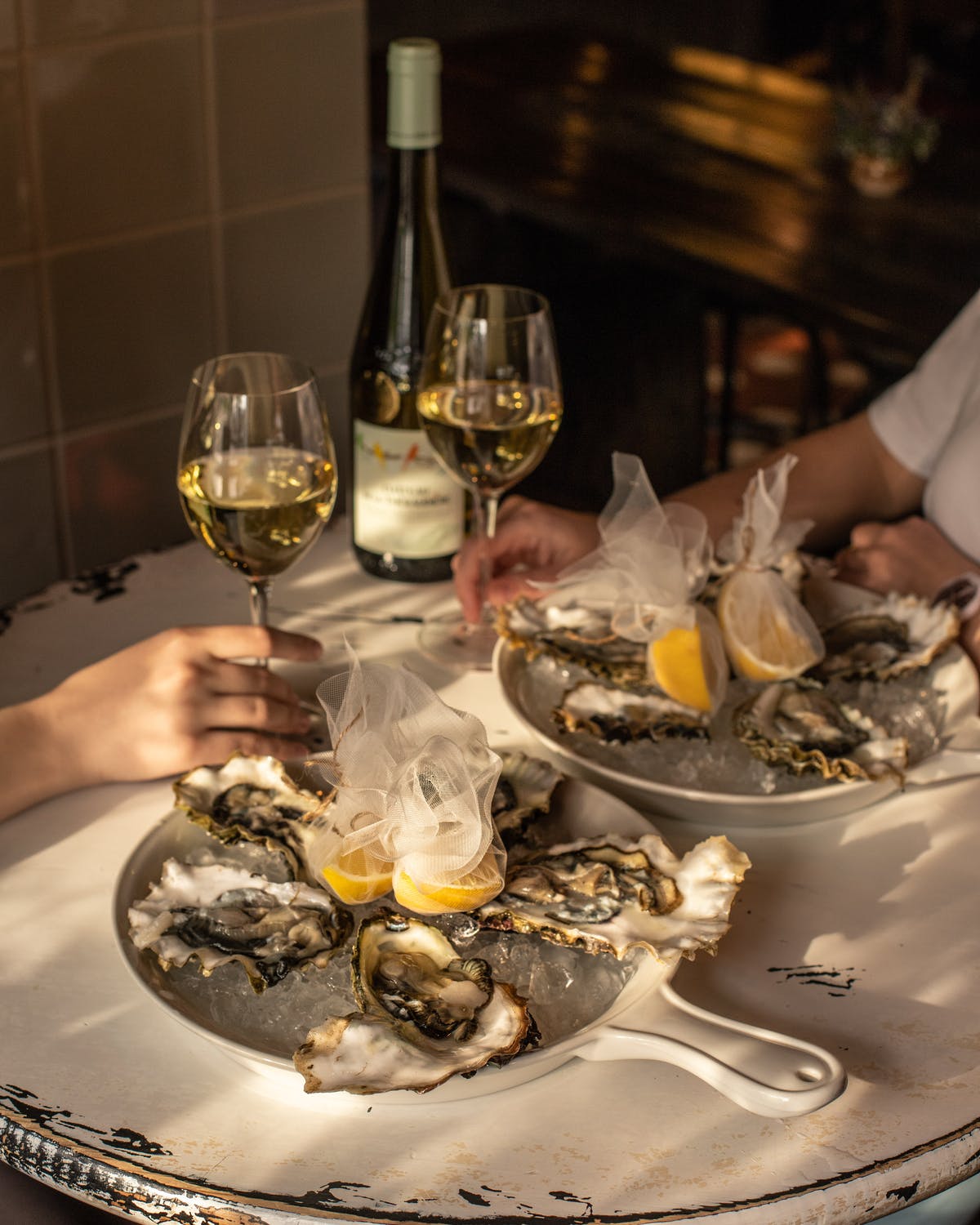
In the bustling heart of New York City stood “The Kettle of Fish,” a renowned restaurant that had been a family legacy for three generations. George Carson, the current owner, took immense pride in maintaining the establishment’s esteemed reputation. Despite having a competent manager, Colt Farlow, George often made unannounced visits to ensure the restaurant’s operations met his exacting standards.
One evening, around 1:00 AM, George decided to check on his prized wine collection stored in the restaurant’s cellar. As he traversed the quiet kitchen, he noticed a middle-aged cleaning lady meticulously scraping leftover food from patrons’ plates into a plastic bag concealed beneath her apron. Her gaunt appearance and the methodical manner in which she collected the remnants caught George’s attention.
Before he could process the scene, Colt Farlow’s stern voice echoed through the kitchen, reprimanding the woman, “Ruiz! Stop your pilfering. We need to close up!” The woman, identified as Consuelo Ruiz, flushed with embarrassment, quickly finished her tasks, and retreated to the locker room. Intrigued and unsettled, George decided to follow her after her shift.
Maintaining a discreet distance, George trailed Consuelo through dimly lit streets until she entered a dilapidated, condemned building. Puzzled by her choice of refuge, he cautiously followed her inside. There, in a small room illuminated by a flickering light, he observed Consuelo distributing the collected food scraps to four children of varying ages. The realization struck him hard: she was taking leftovers to feed her family.

The sight of children gratefully consuming discarded food from his restaurant filled George with a mix of anger and guilt. He quietly exited the building, his mind racing with thoughts. The following day, he summoned Colt Farlow to his office.
“Farlow,” George began sternly, “I witnessed Ms. Ruiz taking leftovers last night. Were you aware of this?”
Farlow shifted uncomfortably before admitting, “Yes, sir. But she’s just an immigrant trying to make ends meet. I didn’t think it was a big issue.”
George’s eyes narrowed. “Our policy has always been to donate leftover food to shelters, not to have employees scavenge from dirty plates. Moreover, I suspect you’ve been underpaying Ms. Ruiz and pocketing the difference.”
Farlow’s face turned crimson, but he remained silent.
“You’re dismissed, Farlow,” George declared. “Your exploitation and negligence have no place here.”
With Farlow gone, George sought out Consuelo. He found her nervously cleaning a corner of the kitchen.
“Ms. Ruiz,” he called gently.
She turned, fear evident in her eyes.
“I want to apologize for what you’ve endured,” George began. “No one should have to feed their children from leftovers. From now on, you’ll receive fair wages, and any surplus food will be properly packaged for you and others in need.”
Tears welled up in Consuelo’s eyes as she whispered, “Thank you, Mr. Carson.”
George nodded, a newfound determination settling within him. He realized that true leadership required not just maintaining standards but also extending compassion and support to those who upheld his establishment.
This experience transformed George’s perspective, leading him to implement programs that ensured all employees were treated with dignity and fairness. “The Kettle of Fish” not only remained a beacon of culinary excellence but also became a symbol of empathy and social responsibility in the community.
Through this journey, George learned that sometimes, the most profound lessons come from the most unexpected encounters, prompting change that resonates far beyond the walls of his restaurant.





